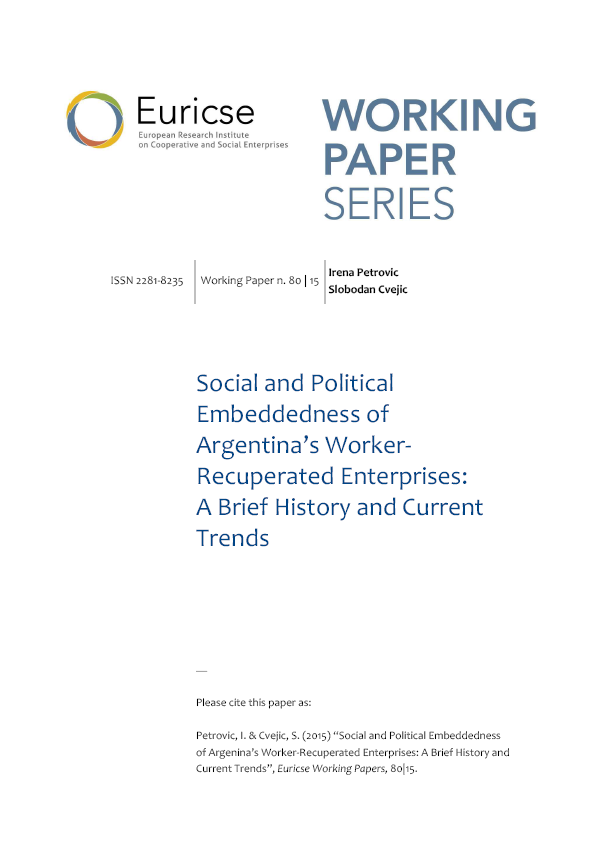WP 80 | 15 Social and political embeddedness of Argentina’s worker- recuperated enterprises: a brief history and current trends
The phenomenon of ERTs (empresas recuperadas por sus trabajadores) in Argentina has gained popularity since the financial crisis of 2001-2002. The resulting drastic drop in gross national product, the high inflation rates, and the increased rates of unemployment and poverty reflected serious weaknesses and limitations of neoliberal institutions in Argentina. This phenomenon was also determined by specific historical patterns, such as state interventionism, a long tradition of
trade unionism and workers’ struggles, as well as a long and deep-rooted tradition of cooperativism. According to the latest survey (Ruggeri, 2014b), there are more than 300 ERTs in Argentina, employing over 13,000 workers. Data show that 95 per cent of ERTs are self-organized under the organizational and legal framework of worker cooperatives.
This paper aims at providing a political, economic and social overview of the emergence and establishment of ERTs in Argentina over the past two decades. Moreover, the legal and institutional preconditions that significantly encourage, limit, and determine the scope of worker cooperatives, will be analyzed. In this analysis we will rely on the results of research on ERTs that has been done over the last 10 years, as well as on a historical analysis of the legal and institutional framework.

